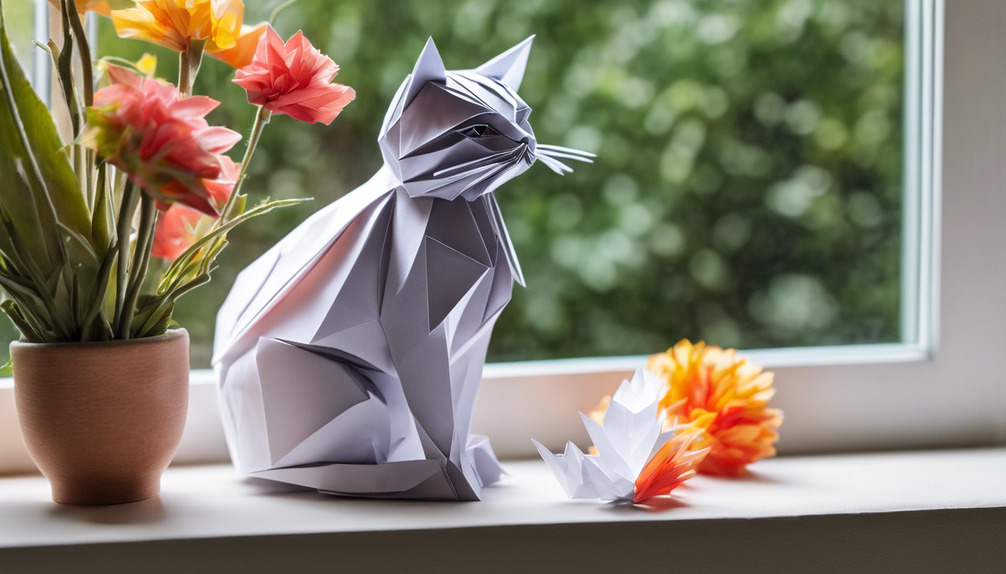As your cat ages, it’s essential to be aware that around 30-40% of cats over the age of 15 develop some form of kidney disease. It can be distressing to witness your beloved cat struggling with this condition, but understanding why older cats suffer from kidney issues can help you provide the best care possible.
There are a multitude of factors at play, and by exploring these reasons, you’ll gain insight into how to support your senior cat’s kidney health.
Key Takeaways
- Older cats have a high prevalence of kidney disease, with 30-40% of cats over the age of 15 developing the condition.
- Chronic kidney disease affects the proper functioning of the kidneys and can lead to symptoms such as weight loss, poor coat quality, and increased drinking.
- Adequate hydration is important for kidney health in senior cats, and providing multiple water stations, using fountains or dripping faucets, and offering wet food can support hydration and kidney health.
- Dietary considerations for senior cats with kidney issues include opting for a low phosphorus diet, limiting protein intake, and including high moisture content in the diet through wet food or adding water to dry food. Carefully selecting food to support renal health is also important.
Understanding Chronic Kidney Disease in Cats
If your older cat is showing signs of weight loss, poor coat quality, increased drinking, or other concerning symptoms, it’s important to understand the potential impact of chronic kidney disease on their health. Chronic kidney disease in older cats affects their kidneys’ ability to function properly, leading to a range of health issues. This condition can be challenging, and it’s essential to recognize the early signs to ensure timely diagnosis and management.
Symptoms of chronic kidney disease in older cats, such as weight loss, poor coat, and increased thirst, require immediate veterinary attention. Prompt diagnosis is vital to assess the severity of the disease and explore treatment options to ensure your cat’s well-being.
Managing chronic kidney disease in older cats may involve therapeutic diets, medication, and supportive care. While the diagnosis may be difficult to process, it’s important to consider the available treatment options to support your cat’s well-being. By providing proper care and support, you can enable your senior cat to manage chronic kidney disease effectively, allowing them to maintain a high quality of life for an extended period.
Hydration and Kidney Health for Senior Cats
As your older cat’s kidney function decreases, ensuring adequate hydration becomes important for their kidney health and overall well-being. Senior cats are more susceptible to kidney issues, such as chronic kidney failure and renal failure, due to their reduced kidney function. Encouraging your cat to drink water is essential.
You can provide multiple water stations and use fountains or dripping faucets to increase their water intake. Incorporating wet food into their diet can support hydration, as it contains more moisture than dry food and can contribute to their kidney health.
Senior cats with kidney problems often need subcutaneous fluids for hydration and kidney support. Regular vet visits are crucial for early kidney disease detection in older cats. Monitoring high blood pressure and kidney disease signs is important to keep your cat’s hydration and kidney health in check.
Dietary Considerations for Senior Cats With Kidney Issues
Considering the dietary needs of your senior cat with kidney issues, carefully selecting their food can impact their overall health and well-being. While feeding a senior cat with kidney issues, there are essential dietary considerations to keep in mind to support their renal health:
- Low Phosphorus Diet: Opt for cat food that’s low in phosphorus to reduce the strain on your cat’s kidneys. High phosphorus levels can exacerbate kidney issues, so selecting food with lower phosphorus content is essential.
- Reduced Protein Intake: Senior cats with kidney issues benefit from a diet with limited protein to minimize the production of waste products that the kidneys must filter. This can help alleviate the burden on their kidneys and support their overall kidney function.
- High Moisture Content: Ensure your senior cat’s diet includes high moisture content. Wet food or adding water to dry food can help increase your cat’s overall moisture intake, supporting their kidney function.
Managing Symptoms of Kidney Disease in Senior Cats
When managing the symptoms of kidney disease in your senior cat, regular veterinary check-ups and close monitoring of their kidney function are essential for their well-being. As your cat ages, the risk of developing kidney issues, such as chronic kidney disease or renal failure, increases.
Early detection and diagnosis are essential for effectively managing symptoms. Adjustments to the treatment plan may be needed as the disease progresses. Your veterinarian may recommend supportive care, including therapeutic diets, hydration maintenance, and medication to manage symptoms, all of which can help improve the quality of life for your beloved senior cat.
Managing high blood pressure, addressing anemia, and reducing proteinuria are important aspects of treatment for senior cats with kidney disease.
For optimal management of kidney disease in older cats, it’s essential to maintain a calm environment and adhere to the vet’s recommendations.
Preventive Care for Senior Cats’ Kidney Health
To help maintain your senior cat’s kidney health, regular veterinary check-ups and blood tests are essential for monitoring their kidney function. Early detection of kidney issues can make a significant difference in treating kidney failure and managing chronic renal disease in older cats.
Here are three essential preventive care measures to support your senior cat’s kidney health:
- Balanced Diet: Providing a well-balanced diet with restricted protein and low phosphorus can help reduce the workload on your cat’s kidneys, supporting their overall kidney health.
- Hydration Support: Encouraging hydration through wet food, water fountains, and dripping faucets can help ensure that your senior cat’s kidneys are effectively flushing out waste and toxins from their body.
- Medical Management: Managing high blood pressure and promptly treating infections through medication can play a Crucial role in preventing kidney issues in older cats.
Frequently Asked Questions
Is Kidney Disease Common in Senior Cats?
Kidney disease is common in senior cats. Regular check-ups to monitor kidney function, dietary changes, and hydration support can help manage it. Remember, early detection and proactive care can improve your senior cat’s quality of life.
At What Age Do Cats Start Having Kidney Problems?
Kidney issues often arise in cats aged 7-10 years, marked by symptoms such as more frequent drinking and weight loss. Regular veterinary check-ups for early detection are crucial.
Why Do Indoor Cats Get Kidney Disease?
You should know that indoor cats get kidney disease due to limited water intake, lack of exercise, stress, dry food diet, and exposure to indoor toxins. It’s important to address these factors to protect your cat’s kidney health.
How Can I Help My Old Cat With Kidney Problems?
You can help your old cat with kidney problems by ensuring they have access to clean water at all times, consulting with a vet for a specialized diet, administering prescribed medications, creating a stress-free environment, and scheduling regular check-ups.




